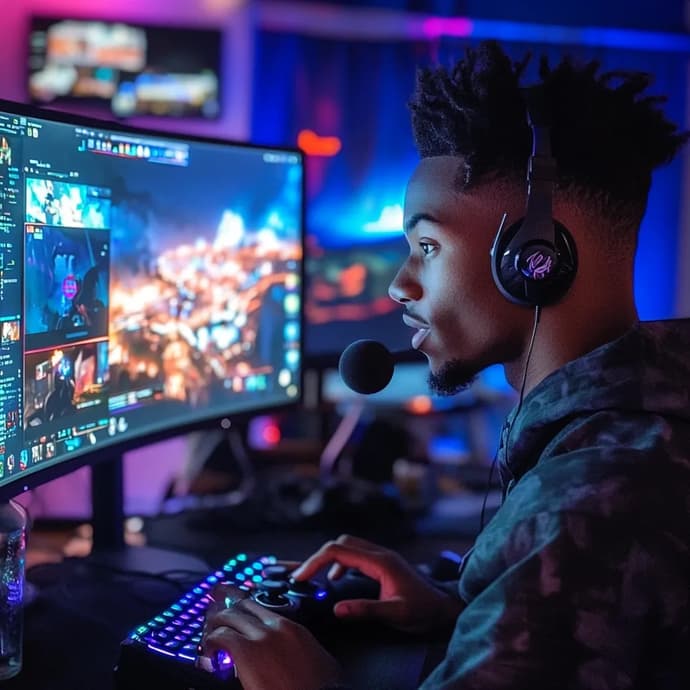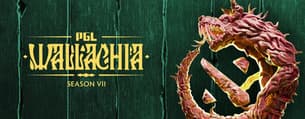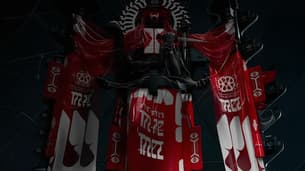
Four of the Top Esports and the Skills Required for Each

Esports have exploded over the past decade. What used to be casual competition has become a full-blown global phenomenon. We see massive arenas packed with fans as well as online streams watched by millions. It seems competitive gaming is here to stay. But not all games are built the same, and each one calls for different kinds of talent. Here's a look at four of the biggest esports titles out there today and the unique skills players need to make it to the top.
CS2 (Counter-Strike 2)
Kicking things off with a legend in the world of shooters. CS2, the revamped sequel to Counter-Strike: Global Offensive. Valve’s latest iteration keeps the core gameplay intact while giving the game a modern polish. It's still five-versus-five and still centered around bomb sites and defusal. It is still all about precision.
What sets CS2 apart is the emphasis on raw mechanical skill. Fast reflexes are a must. Players train for hours just to shave milliseconds off their reaction times. Landing headshots with pinpoint accuracy is expected. On top of that, CS2 demands map knowledge. The best players memorize angles and hiding places like it's second nature.
There's also a heavy focus on team communication. It’s not enough to just aim well. Calling out enemy positions, coordinating site pushes, and timing utility like smokes or flashes all require clear, calm, and quick decision-making. The margin for error is razor-thin. In this game, one good round can swing the entire match.
The industry for CS2 is huge. There are millions of players who get involved in the game and millions more who like to watch. The betting industry is also growing quickly, and there are options for people to explore the markets at https://thunderpick.io/esports/cs2-betting and potentially see how they think upcoming matchups are going to go.
League of Legends
Next up is League of Legends (often called just League), which continues to dominate the esports landscape over a decade after its release. Developed by Riot Games, this multiplayer online battle arena (MOBA) title is a mix of fast-paced combat and strategic positioning. It’s five players per team, and they fight over objectives and try to destroy the other side’s base.
The top skill in League? Game sense. That means knowing what’s happening everywhere on the map, even when it's not visible. Players track enemy movements based on clues. They plan several steps ahead and anticipate fights before deciding where to be at just the right time.
But that's not all. There are over 160 champions, and each has different abilities. Knowing when to fight and which combos to use all matter. Mechanics come into play here too, but not in the same twitchy way as a shooter. It's about timing abilities and outmaneuvering opponents in team fights.
At the pro level, communication and adaptability are huge. Teams practice countless strategies and even change entire playstyles depending on their opponents. Every match feels like a high-speed game of chess (with fireballs).
Valorant
Think of Valorant as a cousin of CS2 but with a twist. Riot Games took the basics of tactical shooters like tight gunplay and layered in characters with unique powers. The result is a fast, flashy, and highly strategic experience.
To excel in Valorant, aiming skills still matter. Shooting mechanics are similar to CS2, and great players need the same level of precision. But with abilities added into the mix like things such as teleportation or recon darts, success hinges on more than just gunplay.
Players need strong ability usage and timing. Using a flashbang at the wrong time can get the whole squad wiped. Great players also have a knack for reading opponents, guessing when and where certain abilities will be used, and then reacting accordingly.
Valorant also rewards creativity. Some players use their agent’s toolkit in surprising ways. This also helps to keep it really interesting to watch. VALORANT Champions Tour (VCT) is the Tier 1 competition for Valorant and is played all over the world.
Dota 2
Another heavyweight in the MOBA category, Dota 2 is notorious for its complexity. It's deep, punishing, and wildly unpredictable. Developed by Valve, Dota 2 features two teams of five players, over 120 unique heroes, and a sprawling map with dozens of variables.
Dota is often the cause of a lot of debate on things like the TI groups – sometimes the “true experts” are those who can predict the outcomes best…even if they are suspiciously equine.
Success in Dota 2 requires strategy and adaptation. Each match is a new puzzle. Heroes are picked and banned before the match starts, creating endless combinations. Players must adapt not only to their own team’s lineup, but also to the enemy’s choices and tactics.
Another crucial skill is resource management. Gold and experience need to be gathered efficiently. Decisions like when to farm, when to push, or when to group up can make or break the game. Mistakes snowball quickly in Dota 2, and comebacks take coordination and calm under pressure.
Unlike most esports, split-second mechanics are not always the star of the show. While quick fingers help, game knowledge and teamwork dominate. Understanding item builds, power spikes, and how to play around objectives is what separates the good from the elite.

Elen Stelmakh ist eine kreative Person, die sich der Förderung der Gaming-Kultur durch Artikel und visuelle Gestaltung verschrieben hat. Als hauptberufliche EGamersWorld-Autorin und Designerin für eine Gaming-Website erstellt Elen nicht nur Inhalte, sondern erfüllt sie auch mit Energie und Kreativität.
 Marathon-Fahrplan: Was die Spieler in den Staffeln 1 und 2 erwartetBungie stellt die ersten beiden Saisons von Marathon im Detail vor. Erfahrt, wie das saisonale System funktioniert, was DEATH IS THE FIRST STEP und NIGHTFALL hinzufügen und was die Spieler nach dem Start erwarten können.
Marathon-Fahrplan: Was die Spieler in den Staffeln 1 und 2 erwartetBungie stellt die ersten beiden Saisons von Marathon im Detail vor. Erfahrt, wie das saisonale System funktioniert, was DEATH IS THE FIRST STEP und NIGHTFALL hinzufügen und was die Spieler nach dem Start erwarten können. Dota 2 PGL Walachei Saison 7 ÜbersichtAlles über die PGL Wallachia Season 7: Zeitplan, Teams, Format und $1M Preisgeld.
Dota 2 PGL Walachei Saison 7 ÜbersichtAlles über die PGL Wallachia Season 7: Zeitplan, Teams, Format und $1M Preisgeld. Genshin Impact Version 6.5: Durchgesickerte Banner, Endgame-Resets und neue ZonenMach dich bereit für Genshin Impact Version 6.5. Entdecke die kommenden Banner mit der neuen Geo-Unterstützung Linnea, aktualisierte Endspiel-Herausforderungen und die mit Spannung erwartete Kartenerweiterung Dornman Port.
Genshin Impact Version 6.5: Durchgesickerte Banner, Endgame-Resets und neue ZonenMach dich bereit für Genshin Impact Version 6.5. Entdecke die kommenden Banner mit der neuen Geo-Unterstützung Linnea, aktualisierte Endspiel-Herausforderungen und die mit Spannung erwartete Kartenerweiterung Dornman Port. Arachne: Belohnungen & Quests der Marathon FactionErforschen Sie Arachne in Marathon: Verträge, Upgrades, Belohnungen und taktische Tipps, um PvP zu dominieren. Ein kompletter Leitfaden für die Fraktion, der sich um den Kampffortschritt dreht.
Arachne: Belohnungen & Quests der Marathon FactionErforschen Sie Arachne in Marathon: Verträge, Upgrades, Belohnungen und taktische Tipps, um PvP zu dominieren. Ein kompletter Leitfaden für die Fraktion, der sich um den Kampffortschritt dreht.





